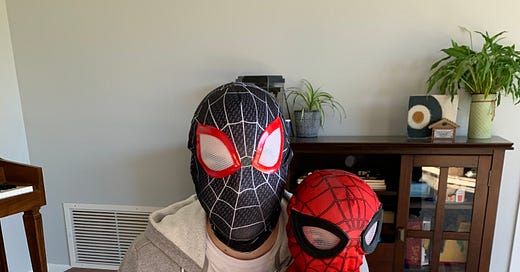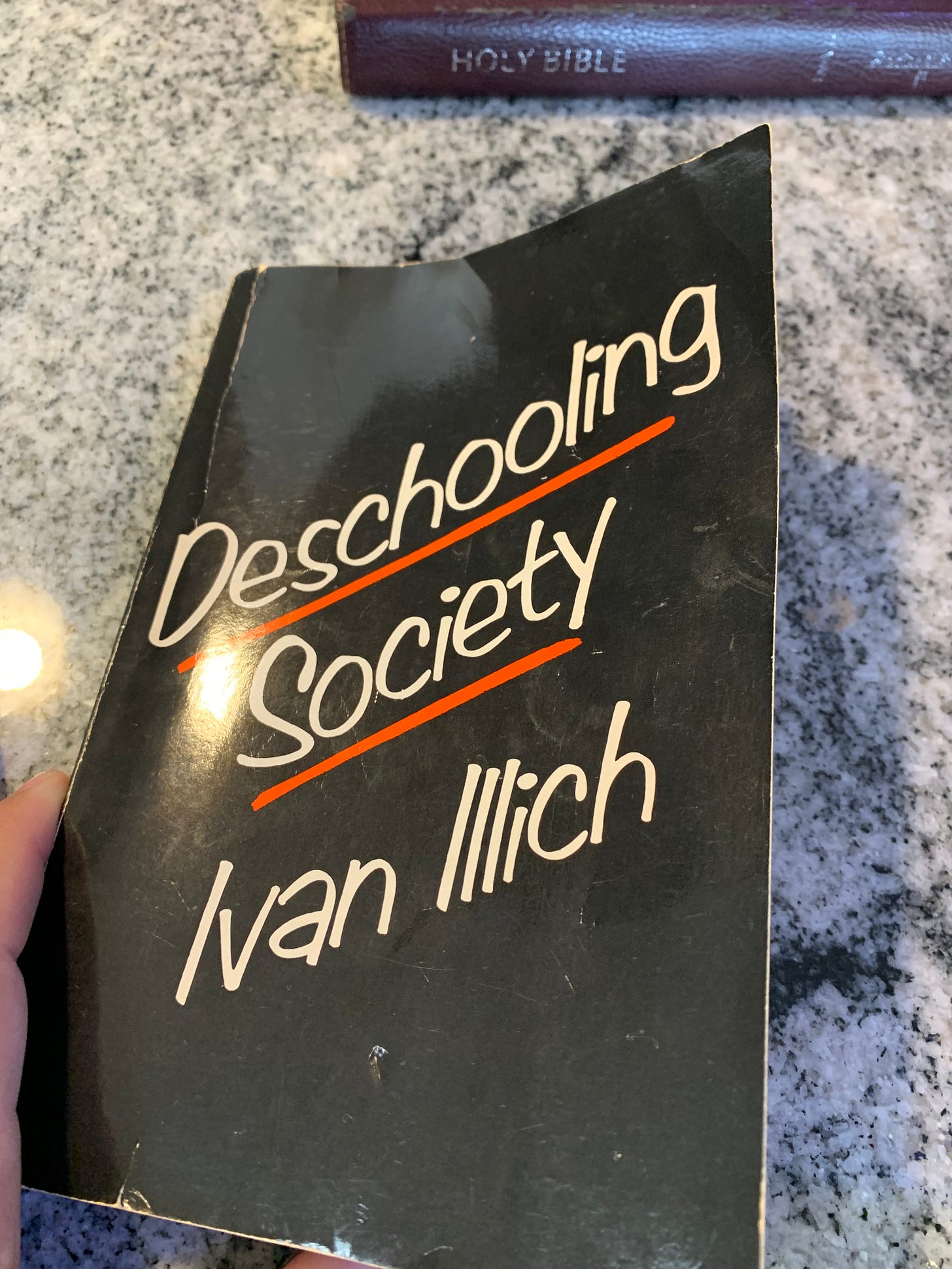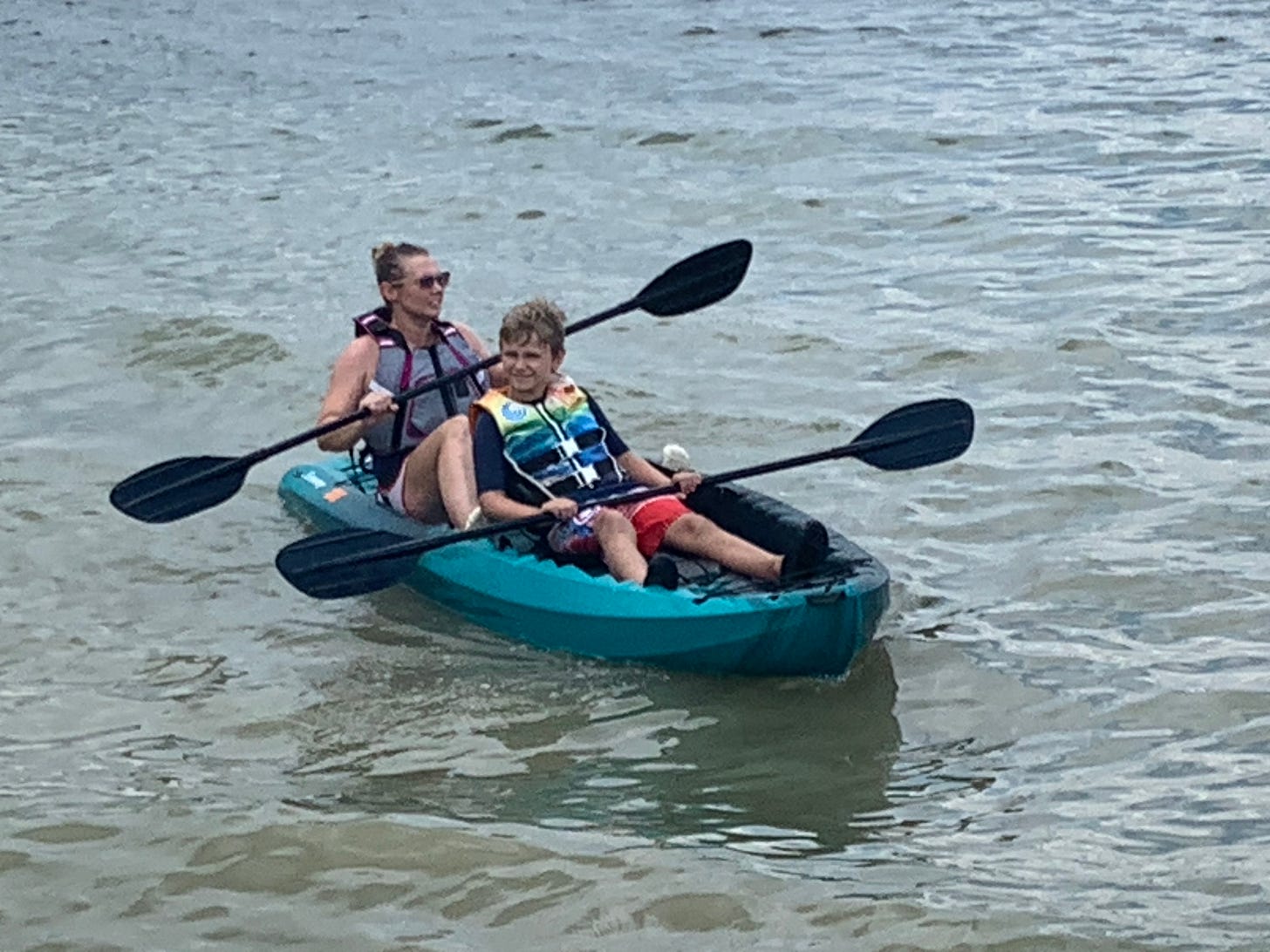Today marks an important transition. I have thoughts.
Homeschooling: An Origin Story
This Thursday marks an important end for our family: the exit from the world of full-time homeschooling. Since 2020, this has been our family’s mode of education. Leaving it does not come without a lot of tears (my youngest), some sense of anxiety (my oldest), and a strange sigh of relief (myself and my wife). Homeschooling, like any mode of education, has much to commend it, and we’ve deeply enjoyed our time in the thick of it.
In the background of this picture, you’ll see the rudiments of our first homeschool setup. It is the early days of COVID: there were no good options.
Through the combination of an indecisive school board, reading Ivan Illich’s Deschooling Society, and the probability of our oldest doing a year staring at a screen or masked and distant from his friends, we made the decision to try educating the kids ourselves. Kindergarten isn’t even required in Texas, so at the worst, they’d come out even.
You see here our youngest (OG Spider-Man) is standing in front of a painters’ tape grid we made to use for teaching numbers and sorting. That first year, my wife and I traded off schooling duties: our oldest was entering kindergarten, and there were no good options. So, like everyone else, we made do. I worked some from home and taught basic math on the side. My wife saw her counseling clients from the bathroom area and worked on the alphabet. There were lots of trampolines and backyard time. We got really into camping again. I loved having so much time with my children, even while I sweated how I was going to start a new job from scratch and make all of it work1.
As COVID vaccines came into view, and the kids got their shots, we shifted toward a three-day-a-week option, populated by homeschool families, where teachers with backgrounds in math, science, language arts, and music taught them. There, they went to school with kids ranging from truly free-range, to kids who just needed more time at home, to kids whose parents were truly afraid of institutional schooling. Homeschooling contains worlds.
There, they got to write and put on their own plays. We held annual Christmas gift sales, which started with assorted ornaments and coloring books, and has grown into families selling woodworking projects and embroidered shirts. They got to collaborate with other grades regularly. And most of all, they had a more relaxed schedule, and lots of time at home.
Financially, I will not miss paying for it. Every year, I had to conciously think about how our very middle-class family was going to come up with the money to do tuition each year. If you’ve ever wondered why I’ve written so many books, taken on so many speaking gigs and seem endlessly busy, that’s it. But it was never not worth it: to see my children come fully alive is the greatest joy I can imagine.
The ethos of the school is one of sweetness and light. Our kids, like all kids, have their own weirdness and quirks, and I’m grateful for them having this space for the last four years there to just be kids. I’m grateful for us being able to have more time with them, to be able to leave town first thing Friday morning and not have to report to anyone. All of this has disproportionately fallen to my wife after the first year; we swap off days to pick up because of work schedules, but the bulk of preparing lessons, researching curriculum, managing school events—this has fallen to her. At this point, I mostly just pay for things and enjoy the time they get to be home in the afternoons and on recurring long weekends.
Keep reading with a 7-day free trial
Subscribe to Taking Off and Landing: Explorations in the Moral Life to keep reading this post and get 7 days of free access to the full post archives.






